
Are you okay? I'm All Right Jack
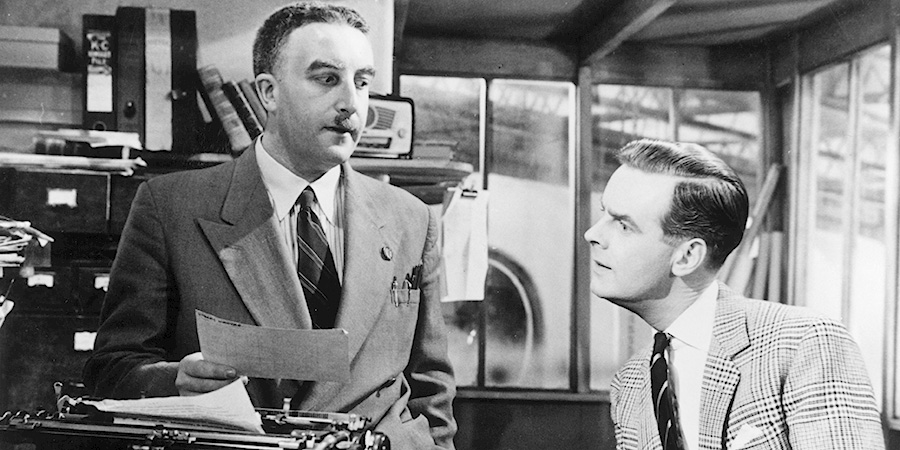
In 1959, British cinemagoers were introduced to a brand new character: Fred Kite, played by Peter Sellers. Kite was a shop steward, elected by the workers at Missiles Ltd. armaments factory to negotiate with the management for better pay and conditions on their behalf. He was also clearly a Communist, though he was reluctant to admit it publicly, pompously declaring only that "my politics is a matter between my conscience and the ballot box".
Privately, Kite clearly has a rather romanticised view of life in Soviet Russia, lamenting his lack of having visited this utopia with "all of them cornfields and ballet in the evening". In the workplace, he is king over all he surveys, a powerful and dangerous figure, able to trigger an all-out strike at the drop of a hat. "We do not and cannot accept the principle that incompetence justifies dismissal. That is victimisation," he argues at one point. At home, however, he is unable to darn a sock and far more vulnerable to the whims of his formidable wife (Irene Handl) and beautiful young daughter, Cynthia (Liz Fraser). His wife (who we know only as 'Mrs. Kite') is growing particularly weary of her husband's total absorption in trades union politics. "Union this and union that! And your blasted Soviet Union!" Mrs. Kite rages on several occasions, "From what I can see, the only time you ever jolly well do any work is when you're on strike!"
Fred Kite is only the most memorable character from I'm All Right Jack, the winning comedy satire from the celebrated filmmaking identical twin brothers, John and Roy Boulting. The film's cast features a wealth of post-war British talent headed by Ian Carmichael as the hapless, nice but dim, upper class twit Stanley Windrush, whose appointment to the factory floor ends up triggering a major industrial dispute. Other familiar faces amongst the cast include Terry-Thomas, Margaret Rutherford, Dennis Price, John Le Mesurier and Richard Attenborough while Terry Scott, Michael Bates, Kenneth Griffith and Esma Cannon all appear briefly in smaller roles.
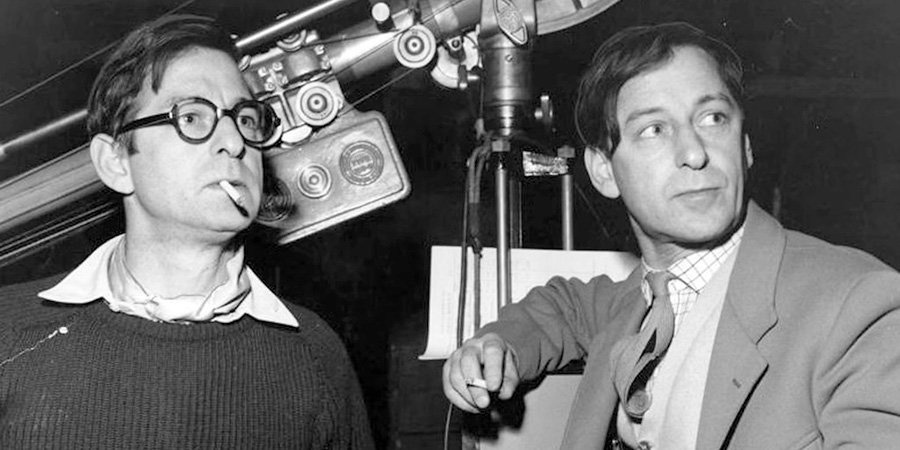
Once on the Left politically, by the late 1950s the Boulting brothers were supporters of the Liberal Party. They had grown cynical about the extent to which the lofty utopian ideals of 1945 were already falling foul of a society fuelled by short-term greed, crass TV commercials and overpowerful shop stewards prone to calling unofficial wildcat strikes. They bemoaned both corporations and unions and their "tendency to think of people not as human beings, but as part of a group, a bloc, a class". They thus set out to make a film which skewered both workers and management equally and which attacked the "I'm all right Jack" society, a phrase which when translated into crude modern slang, essentially meant: "I'm doing okay anyway, screw everyone else!"
We meet Stanley Windrush, a well-connected but naïve innocent who, after failing abysmally in an initial ream of executive positions he is put forward for, secures a place at the company thanks to the intervention of his Uncle Bertram (Price), its leading director, and his business associate - also Stanley's former comrade-in-arms - Sidney De Vere Cox (Attenborough). Stanley's formidable Aunt Dorothy, played by Margaret Rutherford, is horrified ("Does Mr Cox seriously suggest, Bertie, that StanIey shouId throw in his Iot with the working cIasses?") but the corrupt, ruthless Bertram and Cox are fully aware that a lucrative contract is about to be signed with an Arabian nation and spy an opportunity to profit from the situation.
On arriving, Stanley proves predictably useless at driving a fork-lift truck and soon attracts the interest of his fellow workers, suspecting him of being an undercover time and motion monitor, covertly employed to confirm management's (correct) suspicions that the workers are deliberately working as slowly as possible. They swiftly present their concerns to Kite - himself suspicious of Stanley's lack of union membership (as one of Stanley's co-workers helpfully puts it: "It's not compulsory. Only you've got to join, see?"). Personnel manager Major Hitchcock (Terry-Thomas, on brilliant form) privately condemns the workers as "stinkers, "rotters" and "an absolute shower" but is relieved they haven't identified the real time and motion man, a twitchy fellow named Waters (Le Mesurier).
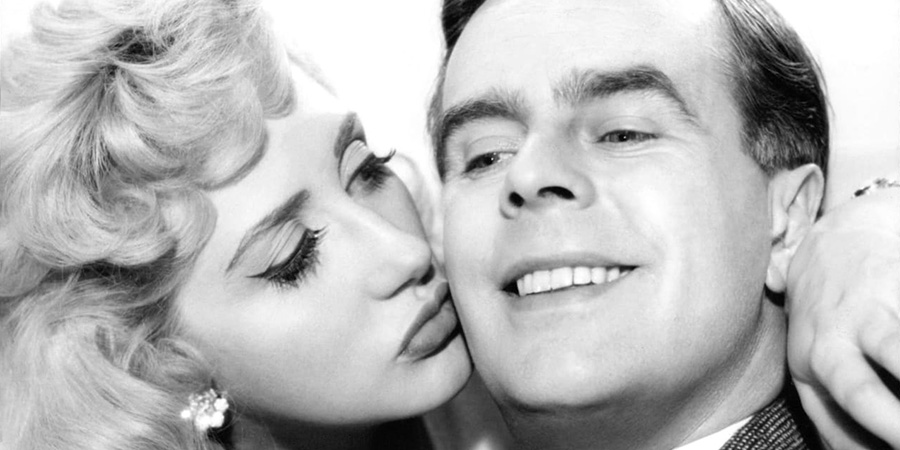
Kite, in fact, soon takes a liking to Stanley and invites him to lodge with his family. Stanley, for his part, soon takes a liking to Fred's daughter, Cynthia - and there is certainly no encouragement required on her part. We see a softer side of Kite here, lending Stanley a number of weighty Leninist texts, though is careful not to "spoil the ending" of one of them. "I see from your particulars,' he says, attempting to bond with Windrush, "you was at college in Oxford. I was up there meself. I was at the Balliol summer school in 1946. Very good toast and preserves they give you at teatime, as you probably know."
Stanley Windrush was exactly the sort of character Ian Carmichael was very well used to playing. By then nearing forty, he had just appeared opposite Patricia Bredin in by-election comedy Left Right And Centre as a Tory candidate who falls in love with his female Labour opponent. Within a few years, he would be cast as the ultimate bumbling posh boy, P.G. Wodehouse's Bertie Wooster, alongside one of his I'm All Right Jack co-stars, Dennis Price, as invaluable valet Jeeves.
In fact, in this case, Carmichael had quite literally played the character of Stanley Windrush before: for I'm All Right Jack is a sequel to the Boultings' 1956 film Private's Progress, both adapted from novels by Alan Hackney. Indeed, a range of characters appear in both tales: Stanley's influential Uncle Bertram (Price); Major Hitchcock (Terry-Thomas); and army buddy Cox (Attenborough); whilst future Dad's Army star John Le Mesurier returns in different but similarly official roles. This is hardly the post-war British version of the Marvel Cinematic Universe, however: a familiarity with Private's Progress is far from an essential prerequisite for enjoying I'm All Right Jack to its fullest.
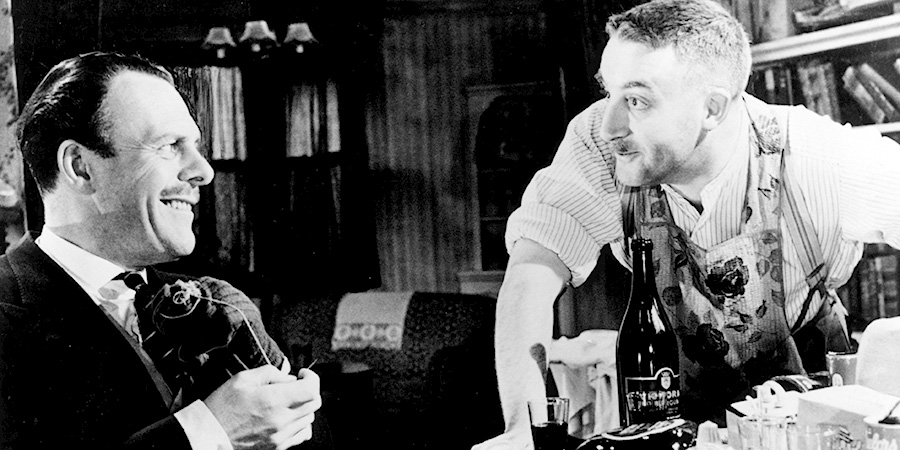
The pre-titles first scene of the later film takes place, rather unexpectedly, in a genteel London club on the night of the Victory in Europe celebration in 1945. There we see an elderly, white-haired gentleman, Sir John (also played by Peter Sellers) being gently woken from his slumber by a waiter, informing him of the end of the war. "Look hard," a voiceover interjects as the doddery figure totters towards the door, "for this is the last we shall see of Sir John, a solid block in an edifice of what seems to be an ordered and stable society. There he goes, on his way out." We then cut to footage of Churchill giving his 'V-for-victory' salute to crowds, before a serving military man (played by Victor Maddern) is pictured atop a lamppost, putting up two fingers himself, in an obscene reversal of the great war leader's famous hand gesture.
We then drift into the opening titles, with cartoons by Michael ffolkes and a theme sung by 1950s pop star Al Saxon with lyrics that perfectly summarise the sort of attitudes the Boulting brothers aimed to attack in the film: "So count up your lolly, feather your nest/Let someone else worry, boy, I couldn't care less".
Hackney, the brothers, and fellow script adaptor Frank Harvey had many satirical targets. We see at once that this not a fair society by any measure. Blinded and incompetent in his naïvety, a series of establishing montages illustrate Stanley's initial attempts to prosper in promising high-level positions, opportunities afforded to him through little more than his background and family connections. The film also finds time to mock the banality of TV advertising (ITV had started in 1955) with two perfect - and entirely plausible - send-ups of insufferably catchy 1950s advertising jingles: for washing detergent Detto ("Detto doubIes the bubbIes/Detto haIves aII your troubIes") and Num-Yum bars ("Num-Yum's the best, bar none/So of course we say "Num-Yum").
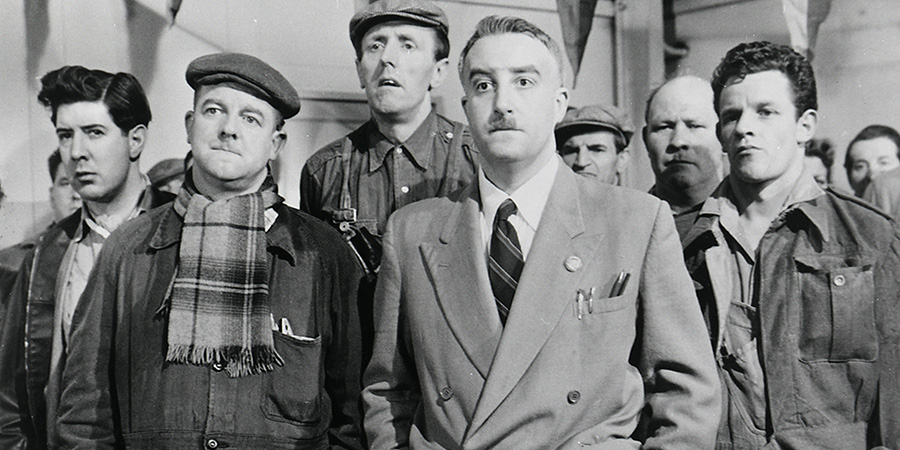
A then-new style of TV discussion show is also parodied in the form of Argument, a sort of early fictional forerunner to the BBC's Question Time, hosted in a cameo by the real-life broadcaster Malcolm Muggeridge. Twenty years later, the elderly Muggeridge would engage in a very fierce televised argument with Michael Palin and John Cleese about their new "tenth-rate" film, Monty Python's Life Of Brian - now widely regarded as one of the finest British comedy films ever made. During its own running time, I'm All Right Jack also manages to lampoon the opportunism of the tabloid press, mock the lofty tone adopted on 1950s newsreels and condemn the "money for nothing" attitude encouraged by many TV game shows.
Perhaps inevitably, some aspects of I'm All Right Jack may raise a slight eyebrow to a modern viewer. Although his character's naming does not seem to be a reference to HMT Empire Windrush or the generation of immigrants who are now referred to by the moniker, it seems unlikely his character would be called 'Stanley Windrush' in any remake of the story produced today. More notably, scenes in which Fred Kite and his trades unionists rebel at the prospect of the men being made to work alongside "coloured labour" might well make 21st Century audiences wince, but are accurate reflections of the sort of thing someone in his situation might well have said at the time. Modern viewers may find the implication that the entire lower level of the British workforce were universally lazy, bone idle and shiftless fairly offensive too; but the similarly uncompromising depiction of a resoundingly corrupt, ruthless management class balances this out, and could be seen as being even more vociferous in its condemnation.
It is perhaps surprising then that the film is noted more for its union-bashing than other targets of its satirical dagger. This is probably in no small measure down to the impact of Peter Sellers's BAFTA-winning performance as Fred Kite: it was not a role he initially wanted to take on.
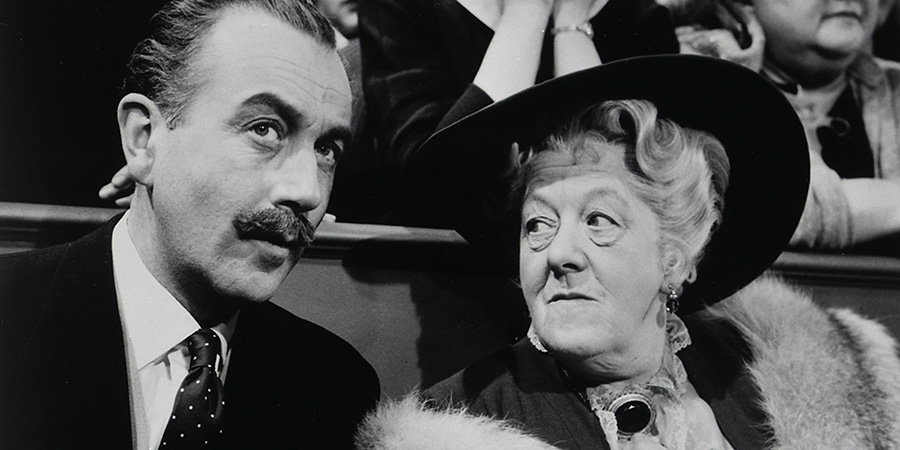
Then in his early thirties, Sellers, was still a star of radio's The Goon Show and with a number of films already under his belt was on the verge of breaking into Hollywood. The Boultings thought he would be perfect for the part from an early stage but for a while he resisted: he did not think either the character or the script were very funny. Over time, however, the Boultings wore Sellers down and he began tentatively experimenting with his accent and appearance, adopting Kite's hairstyle and trademark Hitlereseque pencil moustache.
Roy Boulting had based the character on a steward who he had known at another studio ("He was a very funny little man - unintentionally funny, but he was funny") while Sellers himself threw in an impersonation of a similar character who he had encountered, mixed in with several trade union leaders he had seen on television. A turning point came when a group from the Shepperton Studios Works Committee, which included a number of trades union representatives, saw Sellers performing in character on set. According to Roy Boulting, "They burst into laughter, which they couldn't contain. I saw the change in Peter's face. He hadn't thought it was funny himself, but now he knew. It was funny."
Shooting seems to have gone smoothly. Ian Carmichael remembered Sellers as being easy to work with at this stage of his career. He did recall definite tensions between Sellers and Terry-Thomas, however, as Sellers liked to film his work quickly and get it over with while Terry-Thomas often had trouble remembering his lines and sometimes required as many as thirty takes to get his delivery up to scratch. It is notable that many of the two actor's scenes together are filmed in such a way that little direct interaction would have been required between them.
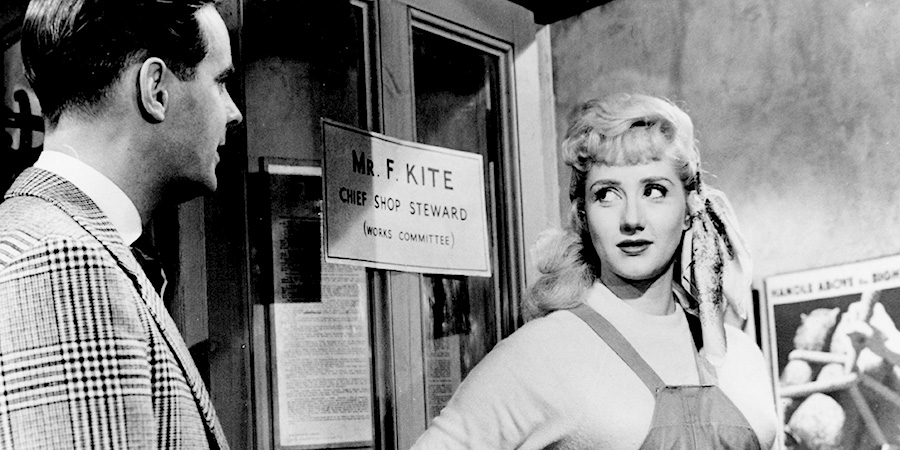
The newly married Liz Fraser had other problems, chiefly fending off Sellers's repeated sexual advances towards her: "I do remember some scenes - and I don't mean film scenes - that he and I had, and which I tried to extricate myself from. In retrospect, he wasn't so much a nasty man as a childish one."
I'm All Right Jack was to prove 1959's biggest domestic hit at the UK box office. Two million people across the country saw it over the course of seventeen weeks. In September, when Conservative Prime Minister Harold Macmillan went to see the young Queen Elizabeth II to request a dissolution of Parliament and a General Election, the Queen arranged a special screening for them both to watch the film that evening. The following month, Macmillan led the Conservatives to an historic landslide victory. Amongst the new MPs elected for the very first time was one Margaret Thatcher.
So, did I'm All Right Jack have any electoral impact? Peter Sellers, who later admitted never voting himself, thought it might have done. "I heard the Tories liked it. It probably did more good to them than it did to Labour," he said. In truth though, while the film had its London debut in August, it did not go on wider release until October, after the General Election was over.
Whatever the truth, I'm All Right Jack remains a must-see film today, not just for its perfect cast, pin-point satire of greedy extremes, or the outstanding performance from Sellers; but also for providing an invaluable snapshot of Britain as it moved slowly from the "never had it so good" era into the Swinging Sixties.
Help us publish more great content by becoming a BCG Supporter. You'll be backing our mission to champion, celebrate and promote British comedy in all its forms: past, present and future.
We understand times are tough, but if you believe in the power of laughter we'd be honoured to have you join us. Advertising doesn't cover our costs, so every single donation matters and is put to good use. Thank you.
Love comedy? Find out moreI'm All Right Jack - Digitally Restored

This sequel to Private's Progress takes a satirical look at trade unions and labour relations.
Upon leaving the army, upper class twit Windrush (Ian Carmichael) takes a job in industry. Before long he has inadvertently started a national strike, which is subsequently mishandled by everyone involved.
First released: Monday 19th January 2015
- Distributor: STUDIOCANAL
- Region: B
- Discs: 1
- Minutes: 105
- Subtitles: English
- Catalogue: OPTBD2804
![]() Buy and sell old and new items
Buy and sell old and new items
Search for this product on eBay
BCG may earn commission on sales generated through the links above.
- Distributor: STUDIOCANAL
- Region: 2
- Discs: 1
- Catalogue: OPTD2804
![]() Buy and sell old and new items
Buy and sell old and new items
Search for this product on eBay
BCG may earn commission on sales generated through the links above.

